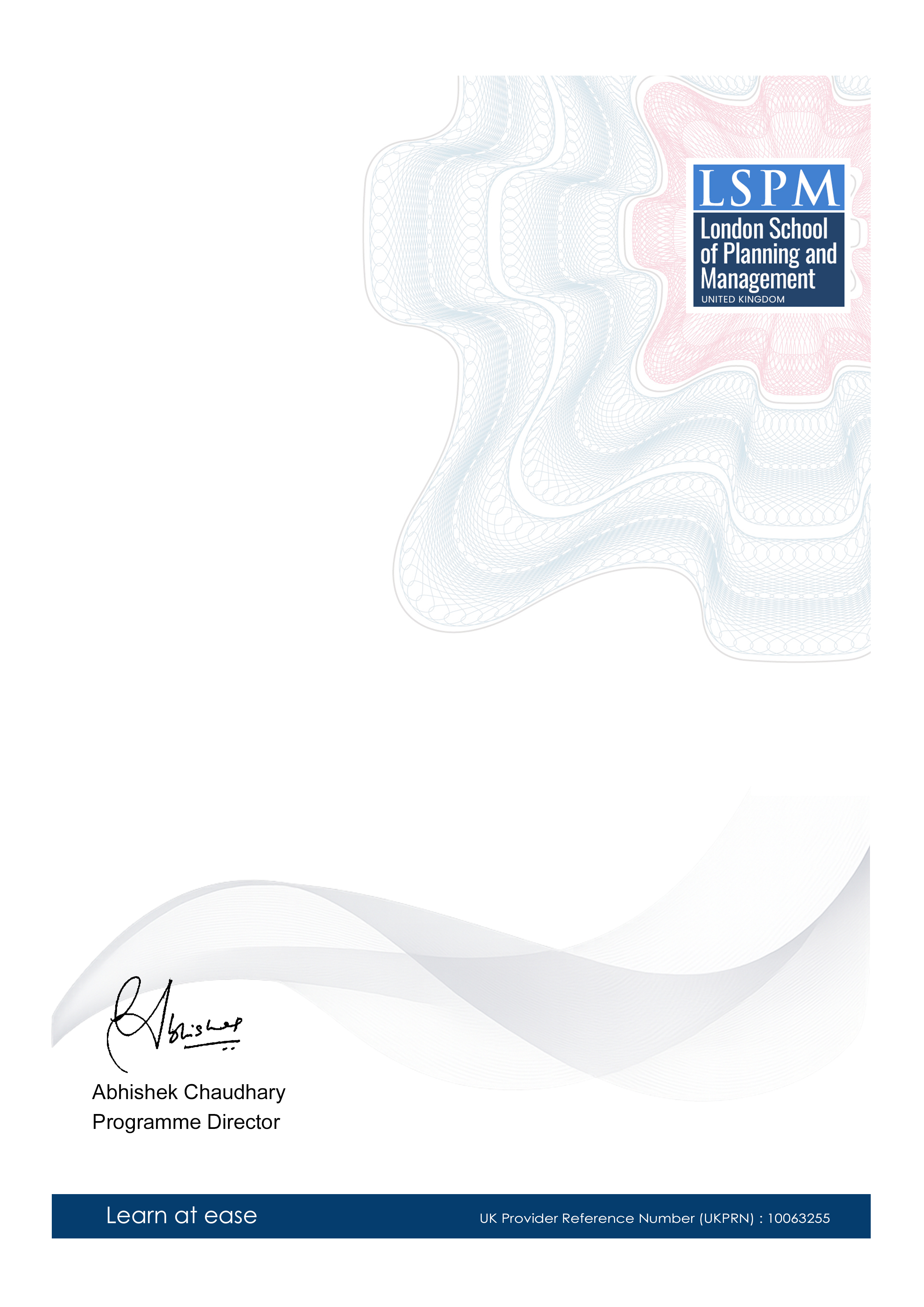Advanced Certificate in Green Urban Air Pollution Control Strategies
-- viewing nowThe Advanced Certificate in Green Urban Air Pollution Control Strategies is a comprehensive course designed to address the growing concern of urban air pollution. This certificate program emphasizes the importance of developing and implementing sustainable, eco-friendly solutions to combat air pollution in urban areas.
2,500+
Students enrolled
GBP £ 149
GBP £ 215
Save 44% with our special offer
About this course
100% online
Learn from anywhere
Shareable certificate
Add to your LinkedIn profile
2 months to complete
at 2-3 hours a week
Start anytime
No waiting period
Course details
• Advanced Air Pollution Chemistry: This unit will cover the fundamental chemistry of air pollutants, including their sources, reactions, and transportation in the urban atmosphere. It will also discuss the key chemical species involved in the formation of smog and other urban pollution phenomena.
• Urban Air Quality Monitoring: This unit will focus on the techniques and methods used for monitoring air quality in urban areas, including the use of sensors, remote sensing, and other advanced technologies. It will also cover data analysis and interpretation, as well as quality assurance and quality control procedures.
• Greenhouse Gas Emissions and Climate Change: This unit will examine the relationship between air pollution and climate change, with a focus on greenhouse gas emissions from urban sources. It will cover the latest research and policies related to carbon capture and storage, as well as strategies for reducing emissions and mitigating the impacts of climate change.
• Urban Transportation and Emissions: This unit will explore the relationship between transportation and air pollution in urban areas, including the impact of vehicle emissions on air quality and human health. It will also cover the latest advances in low-emission and zero-emission vehicles, as well as transportation demand management strategies and policies.
• Air Pollution Dispersion Modeling: This unit will introduce the principles and methods of air pollution dispersion modeling, including the use of computational fluid dynamics and other advanced modeling techniques. It will also cover the application of these models to urban air pollution control strategies, including the optimization of emission reduction measures and the evaluation of their effectiveness.
• Urban Air Pollution Control Technologies: This unit will survey the latest technologies for controlling air pollution in urban areas, including filters, scrubbers, and other end-of-pipe controls. It will also cover emerging technologies for reducing emissions at the source, such as catalytic converters and selective catalytic reduction systems.
• Urban Planning and Air Pollution Control: This unit will examine the role of urban planning and design in reducing air pollution and improving air quality. It will cover the latest research and best practices in land use planning, transportation planning, and building design, as well as the integration of air pollution control strategies into urban planning and policy.
• Public Health
Career path
Entry requirements
- Basic understanding of the subject matter
- Proficiency in English language
- Computer and internet access
- Basic computer skills
- Dedication to complete the course
No prior formal qualifications required. Course designed for accessibility.
Course status
This course provides practical knowledge and skills for professional development. It is:
- Not accredited by a recognized body
- Not regulated by an authorized institution
- Complementary to formal qualifications
You'll receive a certificate of completion upon successfully finishing the course.
Why people choose us for their career
Loading reviews...
Frequently Asked Questions
Course fee
- 3-4 hours per week
- Early certificate delivery
- Open enrollment - start anytime
- 2-3 hours per week
- Regular certificate delivery
- Open enrollment - start anytime
- Full course access
- Digital certificate
- Course materials
Get course information
Earn a career certificate

